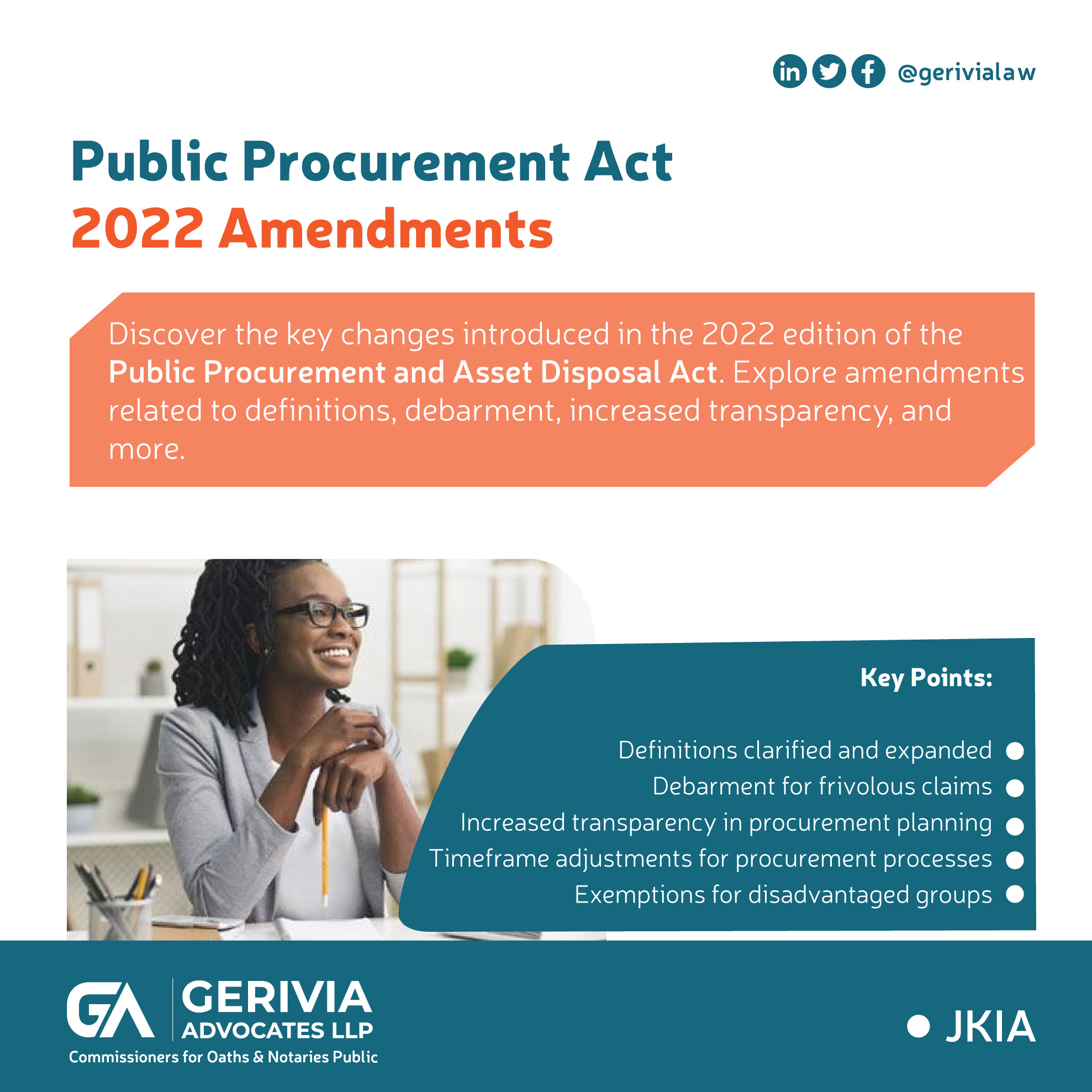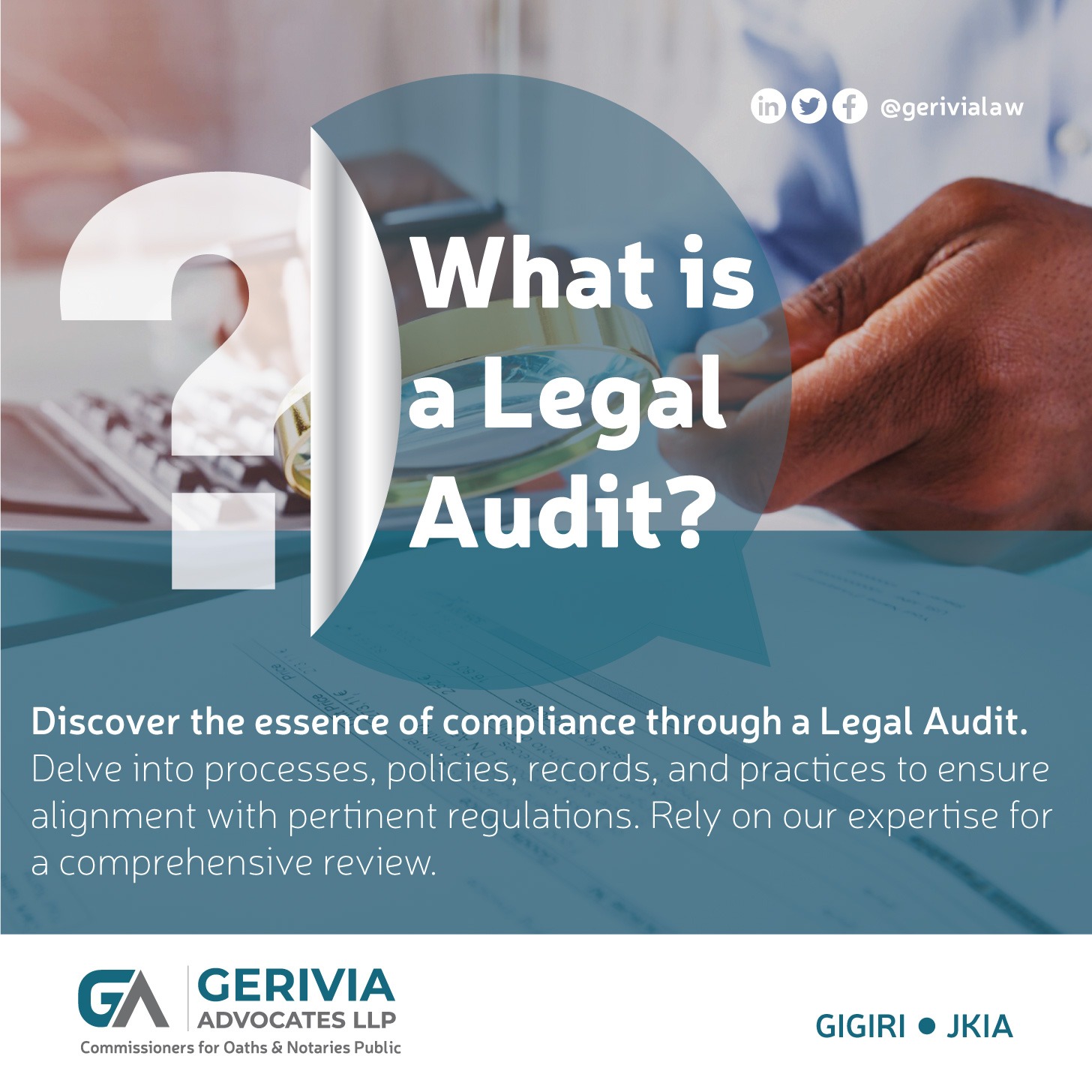This is a follow up of the Highlights of the Sectional Properties Act, 2020 following the gazettement of the Sectional Properties Regulations, 2021 by the Cabinet Secretary for Lands and Physical Planning through Legal Notice No. 236 of 2021, dated 26th November 2021.
1. What is the objective of the Sectional Properties Regulations, 2021 (“the Regulations”)?
To operationalize the Sectional Properties Act, 2020 (“the Act”). The Regulations primarily deal with the process of registering sectional plans and conversion of registered long- terms leases over sectional units.
2. When will I need to refer to the Regulations?
You will have to refer to the Regulations when you want to know how the sectional plans should be drawn/prepared, what the sectional plan needs to be accompanied with before it is submitted for registration, the form of the endorsement of the sectional plan by a surveyor and the County Government, how to illustrate units on a floor plan and express the units, registration of the corporation and conversion.
The Regulations contain various forms to be used at different stages of registration of sectional plans and during conversion of long-term leases.
3. Which parties will I be expected to interact with if I want to register a sectional plan or convert a long-term lease?
The following have key roles under the Regulations:
-
- A surveyor-prepares the sectional plan and endorses it with his licence number before it is submitted for registration;
- County Executive Committee Member in charge of approval of buildings-endorses the sectional plan before it is submitted for registration;
- Owner of the property-endorses the sectional plan before it is submitted for registration;
- Land Administration Officer-endorses the sectional plan to confirm that rent (where applicable) has been apportioned to each unit.;
- County Executive Committee-endorses the sectional plan where it conforms with the building and architectural plans;
- Registrar (Ministry of Lands)-registers the sectional plans and issues sectional titles which could either be a certificate of title of a certificate of lease, issues certificate of incorporation to the corporation.
- Advocates-advise on the contents of the Act and Regulations and ensure compliance with the same, draw up the by-laws of the corporations-including any amendments, management and recreational agreements, assist with winding up of management companies and transfer of the management companies’ assets and liabilities to the corporations
4. Which registers will be opened when a sectional plan is submitted for registration?
-
- Sectional Plan Register-where the sectional plan will be registered. The Register shall be in Form SP8 for freehold and Form SP 9 for leasehold;
- Corporation Register-where the corporation will be registered. The Register shall be in Form SP8 for freehold and Form SP 9 for leasehold and registration certificate for the corporation will be issued in Form SP10;
- Unit Registers in Form SP 11 if parcel is freehold or Form SP 12 if parcel is leasehold.
NB: Once the sectional plan is registered, the Registrar shall close the register of the parcel described in the sectional plan before proceeding to open the unit registers.
5. What are some of the rights and obligations I will have as a unit owner?
-
- An owner may sub-divide or consolidate their unit by registering a sectional plan of sub-division or consolidation.
NB: where the sub-division or consolidation is likely to affect the incidental rights of any unit owner in respect of common property, the affected owner has to give consent before the sectional plan for sub-division or consolidation can be registered.
- An owner may apply for conversion where the shares in the management company have not been issued to the owners as per agreement and the management company has failed to apply for conversion;
- After conversion of a long term lease, an owner will be issued with a certificate of title/lease.
- An owner can apply for extension or renewal of the lease term as provided under the Land (Extension and Renewal of Leases) Rules 2017.
- Where a tenant occupying your unit is in breach of the by-laws, the corporation should issue the owner of the unit with a notice to take necessary action.
- As an owner of a unit, you are obligated to individually pay rates and rents as apportioned.
- Where you desire to rent-out your unit, you are required to notify the corporation. You are also required to notify the corporation when the tenancy agreement lapses.
- An owner may sub-divide or consolidate their unit by registering a sectional plan of sub-division or consolidation.
6. Which long-term leases shall be converted to sectional units?
-
- All the units which have been transferred to the respective owners and the reversionary interest has been transferred to the management company to hold in trust for the owners;
- All units which have been transferred to the respective owners and the reversionary interest is by written agreement intended to be transferred to the management company to hold in trust for the owners; and
- Part of the units have been transferred to the respective owners and the reversionary interest is by written agreement intended to be transferred to the management company to hold in trust for the owners.
7. What happens where a management company or owners of units intend to apply for conversion but are unable to avail the original title, the approved architectural plans?
Where the management company or owners of units are unable to avail the original title (which is otherwise not encumbered), they shall provide an indemnity in accordance with regulation 27 & 28 of the Land Registration (General) Regulations, 2017.
Where the management company or owners of units are unable to avail the approved architectural plans or they avail an architectural plan which is at variance with the development, the management company or the owners shall avail a sworn affidavit detailing the loss or inability to avail the said documents.
The surveyor can prepare the sectional plan without necessarily relying on the approved architectural plan and the County Government can endorse its certificate on the sectional plan without the production of the approved architectural plans based on the sworn affidavit.
8. Are there long-term leases that are exempt from conversion?
Yes, there are, and they include those in respect of-
-
- Where it is expressly provided by agreement that reversionary interest belongs to the developer or lessor or the management company as legal owner and not as trustee;
- Large mixed-use developments and phased developments where it is by agreement provided that reversion shall be retained by the developer or to be otherwise held by a management company; or
- Projects of strategic national importance, substantial transactions and special economic zones, which by their nature, renders it impractical to relinquish reversionary interest.
9. What recourse do the owners of a sectional unit have where the management company or a developer fails to apply for conversion?
-
- Where the shares in the management company have not been issued to owners as per agreement and the management company has failed to apply for conversion using the procedure provided under the Regulations, any owner or owners may apply for registration in accordance with the provisions on conversion.
- Where a developer has failed to apply for conversion under regulation 18 (4) of the Regulations, the management company or any owner or owners may apply for registration.
- The Regulations provide that where the conversion process is initiated by the owners or management company in the circumstances above (under regulation 18 (3) and 18 (5) respectively), the Registrar may on reasonable grounds dispense with production of the title to the parcel.
10. If I purchase a sectional unit, what completion documents should I expect?
-
- Certificate of Title or Lease in respect of the unit indicating the unit number and shares in the common property as well as rent payable (if the parcel where the unit is located is leasehold);
- A copy of the sectional plan;
- A copy of the corporation’s registration certificate;
- A copy of the corporation’s by-laws or proposed by laws;
- A copy of the management agreement or proposed management agreement (if any); and
- A copy of the recreation agreement or proposed recreation agreement (if any);
NB: The documents listed above are in addition to other customary completion documents including, copies of the Architect’s Certificate of Completion, Certificate of Occupation issued by the relevant County Government, Environment Impact Assessment Certificate issued by NEMA
11. Do the Regulations contain model by-laws of a corporation?
Yes, they do. The corporation may make by-laws to provide for the control, management and administration of the units, the movable and immovable property of the corporation and the common property and for the establishment of a committee.
Please note that, on the first registration, the by-laws specified in the Regulations shall be the by-laws of the corporation.
By-laws can be amended, repealed or replaced by a special resolution. For an amendment, repeal or replacement of a by-law to take effect, the corporation has to file a copy of it with the Registrar and the Registrar has to make a memorandum of filing on the sectional plan.
12. Do the Regulations contain provisions on renting out of units?
Yes, the Regulations provide the procedure which an owner wishing to rent out his unit should follow. This include notifying the corporation in Form 17 and the process of notifying the corporation of the name and other details of the tenant through Form 19.
The Regulations also provide the procedure of dealing with a tenant who is in breach of the by-laws and provides that where the dispute is decided against the tenant by the Internal Dispute Resolution Committee, the corporation shall issue the tenant with a notice to vacate the premises.
13. Which changes in the corporation should the Registrar be notified of?
-
- Amendment, repeal or replacement of any by-law;
- Termination of sectional status of a building;
- Transfer of a parcel (following sale of a sectional property);
- Change of the corporation’s address;
- Change of board membership of the corporation; and
- Change of membership of the corporation (where there is an exit or entry of a unit owner)
Conclusion.
The Regulations offer guidance and clarity on certain processes under the Act including:
-
- Application for registration of a corporation;
- Rent apportionment form;
- Application for endorsement by the County Government;
- Application for conversation of sub-leases/long term leases;
- Notices to be issued by the corporation or the owner of a unit; and
- The By-laws of a corporation.




